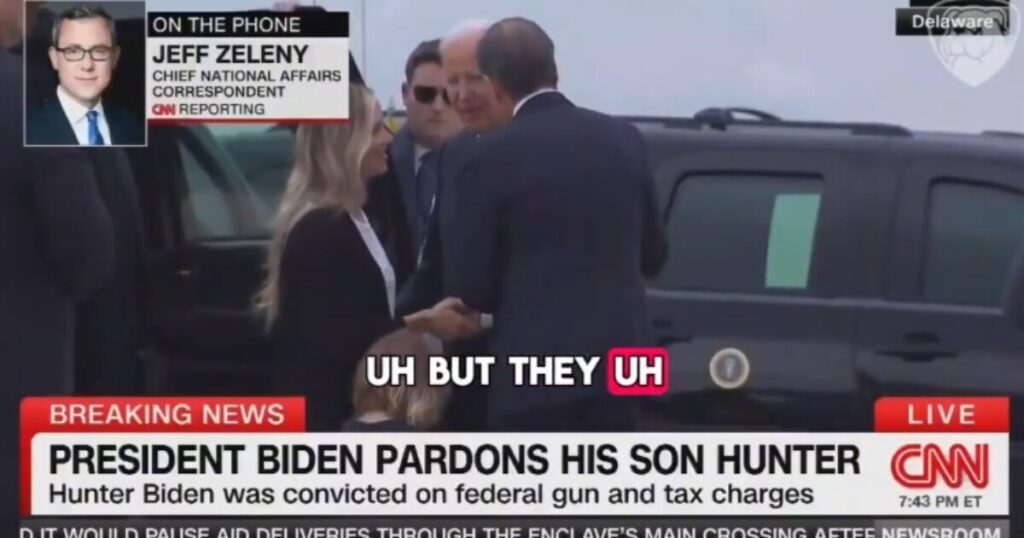On a recent broadcast, CNN correspondent Jeff Zeleny openly discussed the controversial decision by President Joe Biden to grant his son, Hunter Biden, a blanket pardon for any criminal activities he engaged in from 2014 onward. This pardon reportedly covers a range of serious allegations, including influence peddling, prostitution, and potentially acting as a financial intermediary for the Biden family. Zeleny highlighted that the decision was reached after considerable deliberation within the Biden family, noting that it had not been a topic of extensive discussion in the broader context of the White House’s policy agenda. The immediate context leading to this decision appears to be a pronounced concern about future legal challenges, particularly regarding the potential actions of an incoming Trump administration.
Zeleny indicated that the Biden family had been preoccupied with worries about possible legal repercussions stemming from Hunter’s past actions, particularly as the political landscape shifted with the prospect of a Republican-led Justice Department. This fear seems to have played a crucial role in prompting President Biden to act decisively in granting the pardon. The White House’s previous stance, which Biden communicated in June—where he openly stated that he would not intervene in his son’s legal troubles—has markedly shifted, reflecting the escalating pressures and realities surrounding the family’s legal situation.
The timing of the pardon, which came after a family gathering in Nantucket, suggests that personal relationships within the family and the desire to protect their legacy were significant factors. Zeleny noted that this decision was certainly not made lightly; rather, it followed extensive discussions among family members about the implications and ramifications of Hunter’s potential legal exposure. The reference to a “family discussion” implies a deeper, intimate consideration of the issues at stake, far removed from public scrutiny or political discourse.
The gravity of the situation is underscored by the implications this blanket pardon has on the broader narrative surrounding the Biden family and the allegations of corruption linked to Hunter Biden. Critics are likely to interpret this move as a calculated effort to shield not just Hunter, but potentially the President himself from ongoing or future investigations. Zeleny’s remarks seem to suggest that the administration was acutely aware of how politically fraught the pardon might be, signaling an acknowledgment of the precariousness of their current position amid shifting political tides.
Zeleny’s candid coverage on CNN marks a notable shift in how the media is approaching the Biden family’s legal issues, particularly in light of the fragile political environment and the possible resurgence of a Trump administration. By framing the pardon as a protective measure against future legal scrutiny, Zeleny raises questions about accountability, privilege, and the ethical implications of such a decision. It highlights the potentially inequitable nature of political power, where familial ties can influence legal outcomes, thereby complicating the public’s perception of justice and integrity within political leadership.
Ultimately, this development casts a shadow on the Biden administration, raising critical questions about the interplay of family loyalty, legal accountability, and the political ramifications of executive power. While the White House has maintained a public façade regarding Hunter’s legal troubles, the gravity of Zeleny’s revelations underscores the complex realities faced by the Biden family, as well as the potential for ongoing controversies that could affect the administration’s credibility and public trust moving forward. The discussions surrounding this pardon reflect a broader narrative of concern about the governance and operational integrity of political families, particularly as new investigations and political shifts loom on the horizon.

